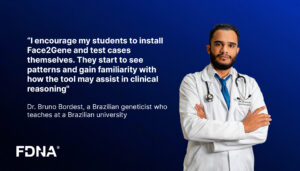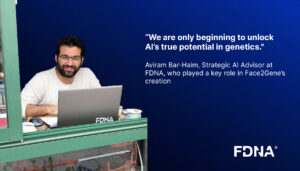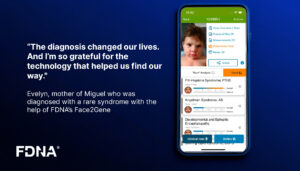January 17, 2019
The algorithm was trained by feeding it with more than 17,000 photographs of patients affected by one of 216 different genetic conditions. In some of these disorders, the patients develop certain facial hallmarks of their condition, such as in Bain-type intellectual disability, where children have characteristic almond-shaped eyes and small chins. FDNA’s algorithm has learned to recognize these distinctive facial patterns that are often undetectable to human doctors.”
The BBC article explores subtle indicators that may predict future health conditions, focusing on FDNA’s pioneering Face2Gene technology. Leveraging sophisticated AI, Face2Gene analyzes facial characteristics to identify phenotypic markers associated with genetic disorders. This innovative decision support tool enhances early and precise diagnoses, enabling prompt and tailored medical interventions. By examining extensive datasets of facial images, Face2Gene can reveal hidden warning signs often missed by traditional diagnostic methods. The article highlights AI’s transformative role in predictive healthcare.


